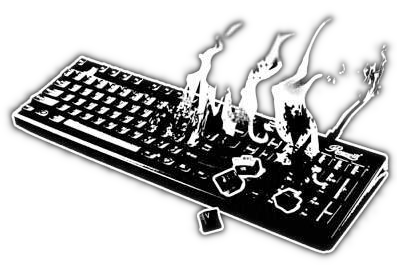
From Anarchist Studies 31.1 (Autumn 2023)
by Adam Rovner, University of Denver
Hayyim Rothman, No Masters But God: Portraits of Anarcho-Judaism
Manchester University Press, (Manchester 2021); 272pp; ISBN 9781526149039
At first glance, the connection between fervently Orthodox Jewish thinkers and anarchism appears preposterous. The explicitly patriarchal, law-bound, traditionalist world of learned piety would seem to rebuff any strain of anarchist philosophy. Then again, if one takes into account the Hebrew Bible’s prophetic tradition that demands social justice, the decentralised and tenuous nature of rabbinic power, the millennia-long evolution of a diasporic existence that engendered autonomous communal structures, the cultivation of traditions of Jewish education that encouraged independent study and scholarship, the promulgation of grass-roots voluntary mutual aid organisations – to say nothing of a history brim-full of discrimination, dispossession, and expulsion that reinforced an ironic attitude towards systems of earthly power – then one might indeed conclude that Torah-true Jewish life is not only conducive to, but also reliant on, anarchist theory and practice. Scholar Hayyim Rothman touches on all these vagaries of Jewish fate in the late nineteenth and early twentieth centuries to explain the life and work of eight exemplars of ‘anarcho-Judaism’. Rothman’s portraits of these men –and they are all men – are so compelling that they coalesce to offer a counter-history to prevailing perceptions of contemporary Jewish religious values.
Virtually none of the figures in Rothman’s book will be familiar to readers. Even the best known, Yitshak Nahman Steinberg and Natan Hofshi, are considered marginal. Though I have written about Steinberg and produced a short documentary about him (No Land Without Heaven), there remains precious little about Steinberg in English, and so Rothman’s informative chapter is a welcome addition to the literature. The other individuals Rothman profiles – Rabbi Yaakov Meir Zalkind, Rabbi Shmuel Alexandrov, Rabbi Yehuda Ashlag, Rabbi Yehudah-Leyb Don-Yahiya, Rabbi Avraham Yehudah Heyn, Rabbi Aaron Shmuel Tamaret – will be known to only a handful of academics. All these eight thinkers were born between 1865 and 1890, a period of time that for Jews ushered in disruptions to traditional life, geographic dislocations, increased persecution, as well as vigorous intellectual ferment. Rothman’s sketches of these figures and their socio-cultural milieu make their personalities and intellectual commitments come to life. His scholarship is far-ranging and deftly moves from political theory to explanations of Talmudic reasoning. Readers unfamiliar with rabbinic exegetical practice may find themselves at a disadvantage, though Rothman effectively glosses unfamiliar terms.
Rothman opens his cleverly titled volume with an overview of the distinction between anarchist thinkers who happened to be Jewish (e.g., Emma Goldman, Bernard Lazare) and the figures he focuses on, for whom there was no contradiction between adherence to rabbinic Judaism and the ideals of social revolution. All these men were deeply learned individuals steeped in the traditions of a demanding, legalistic study of canonical Jewish texts. How then did they come to hold anti-nationalist, pacifist, and libertarian socialist convictions? Part of the answer, Rothman suggests, is that they sought to resist the conditions of oppression they faced through a politico-theological radicalism. Their radicalism derived from three key building-blocks: the biblical prophetic tradition, a Tolstoyan-inflected pacifism, and varieties of agrarian socialism. Each constructed his own utopian dwelling from these diverse materials, and so No Masters But God collects a kind of clamorous dialogue between them that is reminiscent of the constant hum of disputations present in a traditional Jewish house of learning.
Indeed, the majority of those profiled studied at the prestigious Ets Hayim Yeshiva of Volozyn in Lithuania. A yeshiva is an independent school for the advanced study of Jewish sacred texts. In the Lithuanian model, the mostly unmarried, teenaged (male) students study on their own or in pairs and do not follow a fixed curriculum. Ets Hayim is often considered the first modern yeshiva, which does not mean that its leaders welcomed the modern world. On the contrary, its teachers and administrators were often at odds with the reformist or secularist influences that circulated clandestinely among students. Surviving documents penned by Volozyn’s students testify to their engagement with issues such as social reform, nascent Zionist ideologies, and non-religious Hebrew texts, especially newspapers. Like others who studied at Volozyn – Hebrew national poet H.N. Bialik, and the first Orthodox rabbi to publicly support Zionism, Yitzhak Y. Reines – the anarcho-Jews Rothman considers were profoundly challenged by Zionist efforts to revive (or create) a Jewish national identity. The ingenious visions of the figures Rothman treats will continue to cause readers to strive with Zionism’s contemporary neo-liberal and colonialist incarnations. Perhaps the activism of Steinberg, the mysticism of Ashlag, and the anti-militarism of Hofshi will yet inspire Jewish leaders to seek out alternative futures.

Comments
The issue of the journal is
anon (not verified) Sun, 10/22/2023 - 08:22
The issue of the journal is actually 31.2, not 31.1.
damn
Nettle Sun, 10/22/2023 - 10:37
this yeshiva model has a lot to offer, it seems to me. i mean in the independent study department sense, & not perhaps in the religious department sense.
now, i am thinking of that one friend, dearly departed, who probably would dig this book.
Add new comment